Top Story
Shaping Tomorrow’s Cities: Lessons in Climate Leadership, Land Use and Liveability
How can cities become agile engines of economic prosperity, inclusivity and sustainability even as uncertainty becomes the norm?
September 15, 2025
Ten built environment projects from eight countries across the EMEA region have been announced as the finalists in the sixth annual ULI Europe Awards for Excellence, which recognise exemplar projects and programmes in the private, public, and non-profit sectors.
This year’s finalists comprise cutting edge refurbishment, restoration and new build projects, and include residential, healthcare, mixed use, education, community, laboratory and office projects from Italy, Germany, the UK, Belgium, Sweden, Denmark, France and Spain.
The annual awards celebrate the highest standards of achievement in land use practice across the whole development process. All projects must be in an EMEA country, financially viable and significantly implemented, and are rigorously evaluated by an expert jury across multiple factors including planning, construction, economics, management, sustainability and resiliency, community impact, and architecture and design.
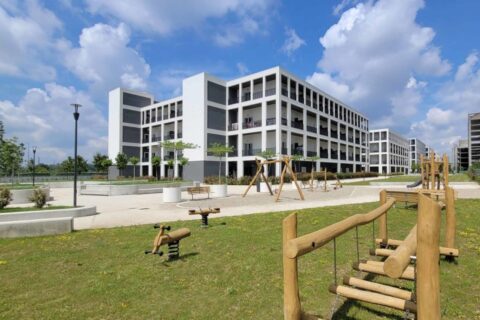
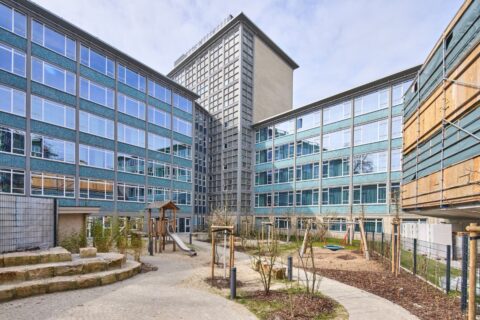

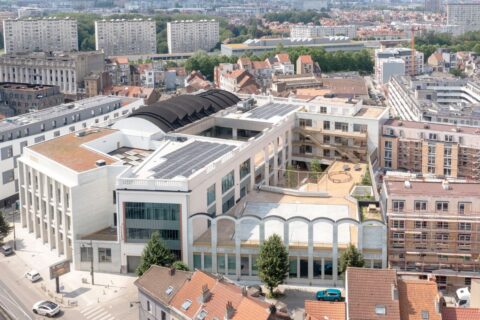
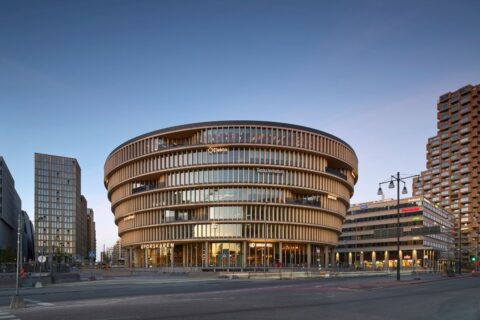
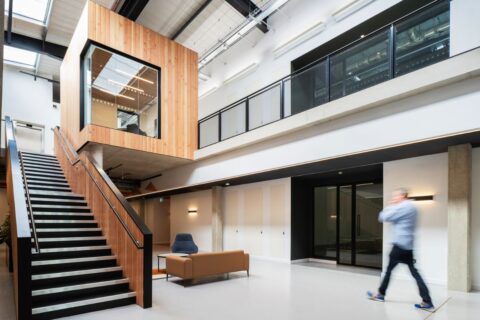
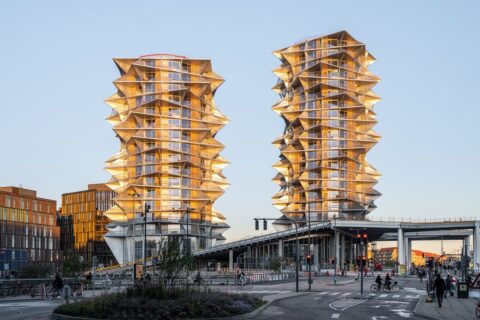
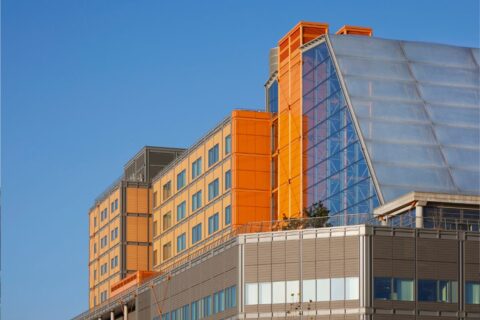


“We have had an incredibly high standard of entries showcasing successful, inventive and transformational solutions for delivering excellence in land use that positively impact communities and are standard bearers of ULI’s core mission focus”, said Simone Santi, Chair of the 2025 ULI Europe Awards for Excellence Jury. “This year, we received 26 submissions for projects pushing the envelope for the European real estate profession and its practices. We’ve more than doubled the entries from last year and, for the first time, received an entry from the Middle East.The jury applies rigorous criteria to assess every project, and while the high standard of submissions made shortlisting a real challenge, it was also an immensely rewarding process.”
The ten finalists are:
5Square, Milan, Italy (Developer: Redo SGR; Owner: Fondo Immobiliare di Lombardia – Comparto Uno; Architect: Barreca & La Varra and Fondazione Housing Sociale); A social housing project of circa 10,000 sqm on an abandoned commercial site aiming to create a vibrant social housing community. (Category: Residential).
Das Neue Gesundheitshaus, Dortmund, Germany (Developer: Landmarken AG; Owner: Das neue 50erJahre Gesundheitshaus GmbH & Co KG; Architect: PINK Architects (design) and HLK Architects (planner)); A repurposed 12,900 sqm listed city centre site of five buildings and example of 1950’s architecture integrating new uses (hotel/restaurant, kindergarten, residential and office). (Category: Mixed Use).
Eden Dock, London, UK (Developer: Canary wharf Group; Architect and Designer: Glen Howells); A 1.55-hectare urban community space designed to positively impact biodiversity and habitat gain, addressing underutilised space and aiming to positively impact environmental sustainability. (Category: Other / Community).
Egied van Broeckhovenschool, Brussels, Belgium (Developer: Vzw Ignatius Scholen in Beweging (school group) and PREO (project director); Architects: B2Ai architects, B2Ai interior design, and Stefaan Thiers (landscaping)); A new secondary school for 860 pupils developed in a converted and refurbished brewery bottling plant. (Category: Education).
Forskaren, Stockholm, Sweden (Developer: Vectura; Architect: 3XN); A new 24,000 sqm circular life sciences hub intended to encourage connection and collaboration between industry, research and academia, comprising flexible offices, co-working and laboratory spaces as well as public restaurants and exhibition space. (Category: Other/Labs).
Inventa, Oxford, UK (Developer: Mission Street; Owner: Mission Street & BGO; Architects: Owers Warwick Architects (Inventa), NBBJ and Oberlanders (Fabrica)); The redevelopment and repurposing of disused retail warehousing into purpose-built laboratory, office and collaboration space. (Category: Other/Labs).
Kaktus Towers, Copenhagen, Denmark (Developer: Kaktus 1 PropCo Aps v/Catella & Høpfner Projects; Architect: BIG – Bjarke Ingels Group); A residential tower complex newly developed on underutilised urban space designed to address shifting accommodation needs. (Category: Residential).
Midland Metropolitan University Hospital, Birmingham, UK (Owners: Sandwell and West Birmingham Hospitals NHS Trust; Architects: HKS, Cagni Williams, Sonnemann Toon); An acute healthcare facility intended as a catalyst for community regeneration in an area of high deprivation. (Category: Other/Healthcare)
Racine, Paris, France (Developer: Alderan; Owner: Opco EP; Architects: Maud Caubet Architectes); A 6,081 sqm project combining refurbishment, development, regeneration and densification that aims to transform the former headquarters of the ONF (National Forestry Office) into a mixture of uses. (Category: Office)
Ruiz Picasso 11, Madrid, Spain (Developer and Owner: Merlin Properties Socimi S.A.; Architects: Fenwick Iribarren Asociados); A 36,899 sqm office refurbishment project in the CBD intended to emphasise enhanced productivity and wellbeing, integrating technology, sustainability, flexibility and community engagement measures with the aim of meeting evolving workplace expectations. (Category: Office)
The overall winner/s will be revealed on 26 November in Paris at a special dinner held prior to the C Change Summit (27 November) which is part of a ULI-led programme to mobilise the European industry to accelerate the decarbonisation of real estate.
The awards jury, composed of real estate leaders from across the built environment, includes: Simone Santi, Director & Founder, VeO (Italy) and Chair of the 2025 ULI Europe Awards for Excellence Jury; Sébastien Chemouny, Directeur Général, Ofi Invest Real Estate SAS (France); Xavier Denis, Founder, Castlight (Belgium); Brigit Gerritse, General Manager, Dutch Green Building Council (Netherlands); Émilie Jaskula, Global Head of Offices, AXA IM – Real Assets (France) Jorge Pérez de Leza Eguiguren, CEO, Metrovacesa, S.A. (Spain); Ajay Phull, Managing Director, CDPQ UK); Katia Polidoro, Principal Director, TP Bennett, LLP (UK); Simone Pozzato, Senior Managing Director, Hines Europe Ltd (UK); Dan Ringelstein, Director – Master Planning and Urban Design, Arup (UK); and, Prof. Jörn Walter, Chief Building Director, HafenCity University and former Chief Planning Director, City of Hamburg (Germany).
Anne Kavanagh, ULI Europe Chair, said: “The ULI Europe Awards for Excellence are an important opportunity to celebrate all round excellence in impactful project delivery by our industry. Each project is benchmarked by robust criteria covering everything from a development’s financial success to its leadership in areas such as architecture, design and planning, its contribution to the needs of communities, and its sustainability. These are truly boundary pushing, transformative projects. My congratulations to all our finalists as we now look forward to the next exciting stage in this competition.”
“In addition to rightly commending many successful, transformative projects and programmes, these annual awards also build an invaluable directory of best practice in equitable and sustainable urban development”, said Lisette van Doorn, CEO, ULI Europe CEO. “All of these finalists address challenges and opportunities that our members and the wider industry come across every day and have created solutions for, such as the housing and sustainability crises, the need to reuse and repurpose existing buildings in a sustainable and socially inclusive way and respond to trends such as changing ways of working and the integration of different uses, while ensuring projects are financially viable. I think this has been its important legacy ever since the awards were established, and I wish all this year’s finalists well.”
In addition to selecting the overall winners, the jury will also consider “special mentions” for projects that demonstrate excellence in any of the areas focused on by ULI’s mission priorities: decarbonising the real estate sector and accelerating our progress to net zero; increasing housing attainability in communities around the world; and educating the next generation of diverse real estate leaders.
For further information about the competition, each finalist and project images, please visit the ULI Europe Awards for Excellence website.
Ends
Press contact: Tony Nokling: [email protected]
Notes to editors:
ULI Europe Awards for Excellence
The ULI Europe Awards for Excellence recognises superior development efforts in the private, public, and non-profit sectors. Projects and programmes are evaluated against rigorous, multi-faceted criteria, with entries required to demonstrate: market acceptance/financial success; leadership through excellence in areas including architecture, design, planning, construction, amenities, economics, and management; relevance to current and future community requirements; a positive impact in their communities and/or immediate context; environmental sustainability, stewardship, and resiliency; and provide models, lessons, strategies, or techniques that can be replicated in or adapted to other communities. Visit: ULI Europe Awards for Excellence.
The Urban Land Institute:
The Urban Land Institute is a non-profit education and research institute supported by its members. Its mission is to shape the future of the built environment for transformative impact in communities worldwide. Established in 1936, the institute has over 48,000 members worldwide representing all aspects of land use and development disciplines.
In Europe ULI has over 5,500 members across 15 National Council country networks. Visit: europe.uli.org
Don’t have an account? Sign up for a ULI guest account.